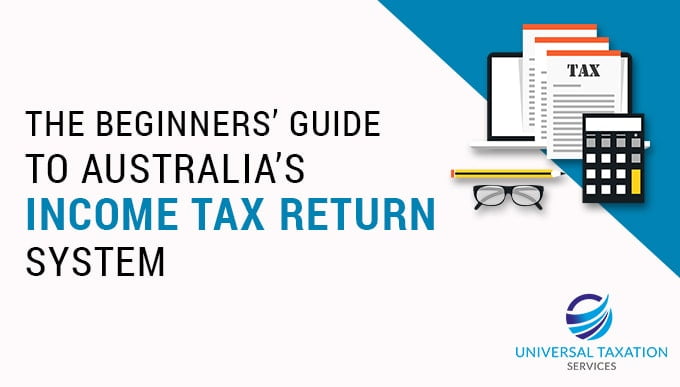How to Submit Your Australian Tax Return Online for a Hassle-Free Experience
How to Submit Your Australian Tax Return Online for a Hassle-Free Experience
Blog Article
Making Uses Of a Tax Return: Unlocking Prospective Cost Savings and Making Certain a Larger Tax Obligation Reimbursement
The income tax return acts as a crucial tool for people looking for to enhance their financial results, offering numerous methods for possible cost savings and enhanced reimbursements. By leveraging debts and reductions, taxpayers can tactically reduce their gross income and improve their total financial standing. However, the intricacies of tax regulations and the ever-evolving landscape of tax obligation law demand a detailed understanding of available choices. What are the essential strategies that can be employed to ensure that taxpayers profit from these benefits? The response might disclose even more than simply financial gains.
Comprehending Tax Obligation Deductions
Lots of taxpayers may discover themselves bewildered by the complexities of tax obligation deductions, yet comprehending these crucial components is important for making best use of potential savings. Tax deductions reduce taxable income, thus reducing the general tax obligation for services and individuals. Familiarizing oneself with the various sorts of reductions available can considerably enhance one's ability to maximize income tax return.
Reductions can be categorized into basic and itemized deductions. The standard deduction gives a fixed decrease in gross income, while itemized reductions permit taxpayers to mention specific costs, such as home mortgage interest, state tax obligations, and charitable contributions. Taxpayers need to assess which alternative generates the best advantage, as choosing the ideal reduction approach can bring about substantial cost savings.
Moreover, it is essential to keep accurate records of deductible expenditures throughout the tax obligation year. This practice not only assists in the prep work of tax obligation returns but also guarantees compliance with IRS demands. Taxpayers must additionally stay informed about modifications in tax legislations that may impact eligible deductions, as these can vary annually. By efficiently traversing the landscape of tax obligation reductions, people can disclose the potential for an extra positive tax obligation result and safe better monetary advantages.
Exploring Tax Credit Histories
Tax credit scores represent an additional significant avenue for taxpayers to reduce their general tax responsibility, matching the advantages acquired from reductions. Unlike deductions, which reduced gross income, tax credit ratings give a dollar-for-dollar reduction of the real tax obligation owed. This distinction makes tax credit scores specifically important for people seeking to maximize their financial savings.
There are 2 main kinds of tax obligation credit scores: refundable and nonrefundable. Nonrefundable credit reports can decrease your tax obligation liability to zero yet not below that amount, while refundable credit scores can lead to a refund if the credit ratings surpass the tax obligation owed. Instances of typically declared tax obligation credit ratings include the Earned Earnings Tax Obligation Credit History (EITC), the Youngster Tax Obligation Credit rating, and education-related credit scores like the American Possibility Credit Rating.
Eligibility requirements for these credit reports can differ significantly, usually based upon revenue, submitting standing, and details conditions. Taxpayers should thoroughly review the criteria related to each credit rating to determine they claim all advantages for which they certify. By purposefully utilizing offered tax obligation credit scores, individuals can improve their tax returns, ultimately leading to significant financial savings and possibly larger reimbursements.

Investing Your Reimbursement Intelligently
Receiving a Tax reimbursement can seem like a financial windfall, yet exactly how that money is used can greatly influence long-term financial health and wellness. Instead than seeing your reimbursement as non reusable revenue, consider it a possibility to invest in your future.


One reliable choice is adding to a Private Retirement Account (INDIVIDUAL RETIREMENT ACCOUNT) This can enhance your retired life savings while possibly yielding tax obligation benefits. Spending in a varied stock profile can give significant growth possibility over time, allowing your refund to work for you in the market.
In addition, consider using your reimbursement to pay for high-interest debt, such as credit scores card equilibriums. Reducing financial obligation can boost your economic standing and alleviate anxiety, inevitably allowing you to assign even more funds towards financial investments in published here the future.
For those concentrated on education and learning, utilizing your refund for a 529 college savings plan can assist safeguard a brighter future for on your own or your children.
Preparation for Future Expenses
Carefully preparing for future costs is crucial for keeping economic security and attaining lasting objectives. A well-structured economic strategy permits people to allocate resources efficiently, making certain that upcoming prices do not interrupt their economic wellness. Tax obligation returns can supply a useful foundation for this planning process.
Making use of the reimbursement as a springboard, people can determine and prioritize significant future expenditures, such as home fixings, education expenses, or health care needs. Developing a spending plan that integrates these expected expenses makes it possible for a proactive strategy, decreasing the likelihood of financial strain when the moment concerns resolve them.
Additionally, alloting funds from your tax refund right into devoted savings accounts can boost the efficiency of your planning. Australian Tax return online. Take into consideration producing an emergency fund specifically for unforeseen expenses, guaranteeing that you are prepared for unforeseen conditions without hindering your economic objectives
Common Mistakes to Prevent
Several people make vital blunders when managing their tax obligation returns that can threaten their economic preparation initiatives. Poor documents can lead to missed out on deductions, resulting in a reduced reimbursement or greater tax obligation responsibility.
Another frequent error is overlooking to examine tax obligation legislation modifications. Tax policies can evolve yearly, and ignorance of these adjustments might lead to missed chances for tax obligation credit scores or reductions. In addition, numerous taxpayers neglect qualified deductions, such as those for educational costs or clinical costs.

Declaring taxes also late or too very early can likewise be detrimental. Early filers may miss out on last-minute tax obligation breaks, while late filers risk fines and rate of interest.
Moreover, not seeking professional support when needed can lead to pricey mistakes. Tax specialists can offer useful understandings, making sure compliance and making the most of potential savings.
Last but not least, hurrying via the return can result in straightforward arithmetic blunders or forgot kinds. Making the effort to confirm all entrances is crucial for a successful income tax return outcome.
Conclusion
To sum up, the tactical application of tax returns offers as an essential device for optimizing monetary advantages. Awareness of usual pitfalls can additionally improve the tax obligation procedure, inevitably equipping taxpayers to take find out advantage of their returns for a much more protected financial future.
Tax obligation credit scores represent an additional notable avenue for taxpayers to minimize their overall tax obligation, complementing the advantages got from reductions. Unlike reductions, which reduced taxed earnings, tax obligation credits give a dollar-for-dollar decrease of the real tax obligation owed. Nonrefundable debts can decrease your tax obligation obligation to no but not below that quantity, while refundable credit reports can result in a refund if the debts exceed the tax obligation owed. Examples of frequently claimed tax obligation debts include important site the Earned Earnings Tax Credit Scores (EITC), the Youngster Tax Credit scores, and education-related credit reports like the American Chance Credit.
Tax guidelines can evolve annually, and ignorance of these adjustments might result in missed out on chances for tax obligation debts or deductions. - Australian Tax return online
Report this page